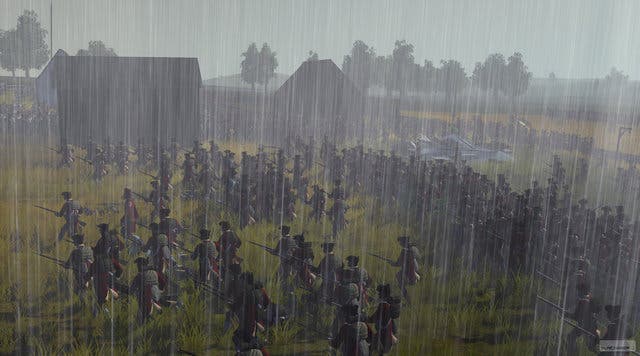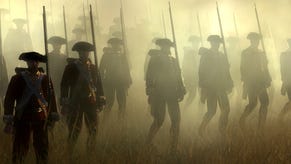Empire: Total War
When life gives you cannons, make Cannonade.
The Grand Campaign is the centrepiece of Empire - when people say Total War, this is what they mean. Playing as any of the major nations, you set off to conquer the world. Well, that's one option - more likely you'll choose a short 50-year game to begin, with some more achievable goals which vary from nation to nation.
When I played as the British (as well as whistling a lot of patriotic jingles in seeming sincerity - I totally went native) my game centred on the sea-lanes, trying to maximise the amount of trade and keep them free of pirates, while alternating between industrialisation, dabbling in proto-Republicanist philosophy, and stomping around fighting the Cherokee in North America. The vast majority of my land battles for the first 25 years or so were against the Native Americans, which turned increasingly bloody when they got their hands on gunpowder.
Conversely, playing as the Prussians, with a scant two areas of control separated from each other in central Europe, led immediately to a classical European battle of muskets and battle-lines, and a rapid pursuit of ever-more-punishing gunfire drills. They were experiences so divorced from one another they may as well have been different games - different games that would take tens of hours each to complete. And in both campaigns, I didn't even get within sniffing distance of India.
Let me expand on that. Empire's Grand Campaign is the grandest of all the Total Wars'. Rather than a single world map, the game is divided into three military theatres: Europe, North and Central America, and the Indian Subcontinent. While the number of actual territories are reduced from the number that would be crammed into the same geographical area in another Total War game, that's a dizzying amount of space to consider. In practice, when you start to play, you don't worry about the world stage. You reduce it to something manageable. In England's case, my colonies. In Prussia's case, the land war. So when I said that I didn't even touch India, I mean that I didn't even send troops to a third of the map. It's an undiscovered country. God knows what it's like.

Total War is scary big. On your first time through it you're going to have significantly different experiences from your friends, assuming you play different countries. Hell, even if you play the same one, you could follow completely different tactical routes. It's an almost impossibly big game, so I'm left judging it on general principles. From what I played, they work enormously well - generally.
In terms of new stuff to worry about on the strategic scale, one of the most immediately striking is the concept of trade zones. These are smaller theatres where you're only able to engage with fleets - the idea being that they're not places you actually conquer, but places you exploit commercially, South America or the Philippines for example. You create merchant ships and try to occupy the port slots. If they're already taken up, you can kick out anyone who's there with warships and take their place, or move fleets along any of the trade routes to actually pirate enemy traffic, adding to your coffers at their expense.

Elsewhere on the strategic side, there's the introduction of a genuine tech-tree for you to research (one of the "techs" being philosophy, which causes an outbreak of republicanism and you deciding between staying loyal or turning to the old liberty, equality, fraternity); agents spawning by themselves as a by-product of other activities rather than being made, including the lovely Gentleman who can either do some research or challenge other bounders to a duel; recruiting directly to armies rather than in cities; governments and opposing governments with different staff; a much improved diplomacy model with more abilities to make deals, and... oh, it's bloody endless.











